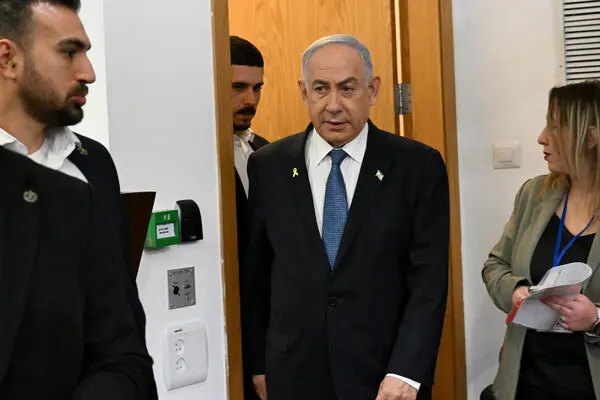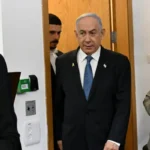
Victory Opens Door
Israeli Prime Minister Benjamin Netanyahu, addressing top security officers on June 29, described the end of the 12-day conflict with Iran as a “victory” that has unlocked diplomatic and tactical openings, particularly for securing the release of Israelis held hostage in Gaza. “Many opportunities have opened up now following this victory. First of all, to rescue the hostages,” he emphasized, adding that resolving Gaza and defeating Hamas would follow.
Hostage Release Takes Centre Stage
Netanyahu’s remarks marked a shift in focus, as one of Israel’s leading advocacy groups, the Hostages and Missing Families Forum, welcomed the prime minister’s prioritization of freeing the 50 Israeli captives believed to remain in Gaza, only about 20 of whom are thought to be alive. For these families, the war with Iran may have delivered their best hope yet after more than 20 gruelling months.
Security Trial Postponed for Diplomacy
Amid burgeoning diplomatic efforts, Netanyahu’s corruption trial testimony was postponed on national security grounds, hinting at how critical the timing may be for hostage negotiations. This strategic pause signals how paramount diplomatic manoeuvring has become in Israel’s current agenda.
U.S. Mediation Intensifies Ceasefire Push
The United States is actively engaged, with President Trump and advisers pushing for a 60-day Gaza ceasefire tied to a phased hostage release arrangement. Talks are taking shape through intermediaries in Cairo, focusing on a deal to free hostages in exchange for Palestinian prisoners. But Israel maintains: Hamas must be disarmed and dismantled first, while Hamas demands a full Israeli withdrawal before it will cooperate.
Conflict Continues Despite Ceasefire
Though fighting with Iran has subsided following a U.S.-brokered ceasefire, Israeli airstrikes continue in Gaza. On June 30 alone, at least 60 Palestinians were killed in strikes across Gaza, coinciding with intense Western diplomatic activity. Israel insists the military pressure is essential to weaken Hamas ahead of any agreement.
Regional Normalization at Stake
Netanyahu also framed the moment as an opportunity for broader regional engagement. Having successfully checked Iran’s proxy influence, Israel may now be ready to pursue normalization agreements with countries such as Saudi Arabia, Lebanon, Syria, and possibly others, offering incentives linked to progress in Gaza and the release of hostages.
Hostage-Families Stay Tense
Despite cautious optimism, hostage families remain anxious. Their hope now rests squarely on a diplomatic breakthrough that ties hostages to a ceasefire, rather than unilateral military moves. The Hostages and Missing Families Forum stressed that resolving Gaza militarily without securing hostage returns is insufficient.
Military Pressure as a Negotiation Tool
Israel’s military leadership argues that pressure, both diplomatic and operational, can force concessions from Hamas. Defence Minister Ron Dermer, heading discussions in Washington, has reiterated that “increased pressure” on Hamas must accompany negotiations to free hostages. Netanyahu echoed this in his statements, vowing simultaneous efforts to rescue captives and dismantle Hamas.
Domestic Politics Weigh Heavily
Netanyahu’s stance reflects a delicate balancing act. With far-right coalition members urging continuation of the war, and other leaders and families calling for an immediate deal, he must navigate intense domestic pressure. At the same time, the U.S. urges swift progress to secure hostages and halt Gaza’s devastation, a humanitarian crisis documented with over 56,000 Palestinian casualties to date.
Strategic Lens: Gambling for Resurrection?
Analysts suggest Netanyahu may be engaging in a classic “gamble for resurrection”: using military success against Iran to shore up political standing and push hostage negotiations before the domestic and international pressure intensifies. With his trial postponed and public support heightened, the approach could reset his political fortunes, but it carries risks if the hostage deal collapses.
Outlook: Fragile Window of Hope
Thanks to the ceasefire with Iran, Netanyahu claims a diplomatic opening, but it’s a narrow and turbulent window. The possibility of broader regional agreements offers a carrot, but Hamas’s demand for full Israeli withdrawal and continued violence in Gaza raises the spectre of stalemate or renewed conflict.
Closing Reflection
In Netanyahu’s telling, Israel’s victory against Iran marks a pivotal turning point, not just militarily, but politically and diplomatically. The fate of the remaining hostages now hinges on whether military leverage seamlessly transitions into a viable ceasefire deal. Failure could prolong suffering and destabilize both the region and Netanyahu’s domestic position. Success, however, could usher in a new phase, one defined by reconciliation, rebuilding, and wider regional cooperation.




































Leave a Reply